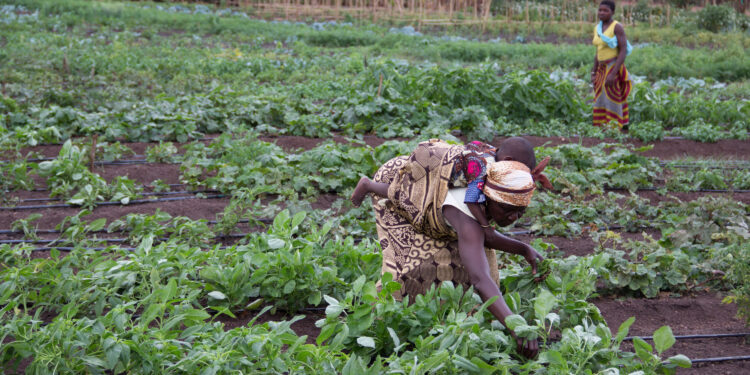By Rehema Namaganda
At the start of this week, on 16th October, the world celebrated World Food Day. The day is celebrated every year to commemorate the date of the founding of the United Nations Food and Agriculture Organization in 1945.
Food is a human right. The right to food protects the right of people to feed themselves in dignity and to ensure that food is available, accessible and adequately meets peoples dietary and cultural needs. The right to food is not mere charity but it is about ensuring that all people have either physical or economic access to adequate food or means to its procurement.
In developing countries like Uganda, the human right to adequate food is inextricably linked to access to land for households to feed themselves directly through production. Indeed, for most of Uganda’s population, land is the basic source of livelihoods. As a country, Uganda’s economy largely relies on agriculture. It is estimated that about 70% of Uganda’s working population is employed in agriculture and in financial year 2021/22, agriculture accounted for about 24.1% of GDP, and 33% of export earnings. There is therefore a high correlation between land and livelihood.
However, the current levels of large-scale land acquisition, and the subsequent land evictions have put people’s right to adequate food at stake in many parts of the country. The frequent evictions are worsened by delayed and many times, denied justice. Whereas this is happening in many parts of the country, the residents of Mubende district have had it rough.
Between 17th and 21st August, 2001 for example, 401 households in four villages of Kitemba, Luwunga, Kijunga and Kiryamakobe in Maddu Sub-couty Mubende District in Uganda, were forcibly pushed away (evicted) from the land they occupied, which was a registered freehold land known as Buwekula Block 99, Plot 1 in the names of Engineer Emmanuel Bukkoto Kayire. The victims of this mass-push away (eviction) were displaced without compensation or relocation. Following this eviction, the land was allocated to foreign German investors – Neumann Kaffee Gruppe – trading as Kaweeri Coffee Plantation Ltd.
On 15th August 2002, a suit was filed and since then, these people have had a draining back and forth through the court processes. To date, October 2023, twenty-two (22) years since the eviction, the matter still lies unresolved, as people wait for justice, many have died and a number are frail now, with hardly any energy to follow up the wearisome court processes.
According to a working paper authored by the Human Rights and Peace Center (HURIPEC), a se department at the Makerere University School of Law, in Uganda, like many other countries on the globe, the problems surrounding vulnerable groups and communities when it comes to land governance are three prong: their exclusion and marginalization in ownership of and access to land; their limited participation in policy-making and in institutions of land governance; and the difficulty of accessing justice when their rights are violated.
The experiences of the victims of the 2001 Kaweeri Coffee Plantation eviction speak to the evictees’ powerlessness, voicelessness, fear and vulnerability. The community’s fruitless quests for justice also reflected in the Court record are evidence of a push or escalation from vulnerability to marginalisation.
Land eviction without adequate legal remedies is a contributor to food insecurity and undernutrition in rural Central Uganda. It is essential that the Government strengthens and enforces the policy and legal environment to ensure adequate and timely compensation of evictees in order to reduce their vulnerability to food insecurity.

Rehema is the country coordinator for FIAN Uganda, a human rights organisation.








